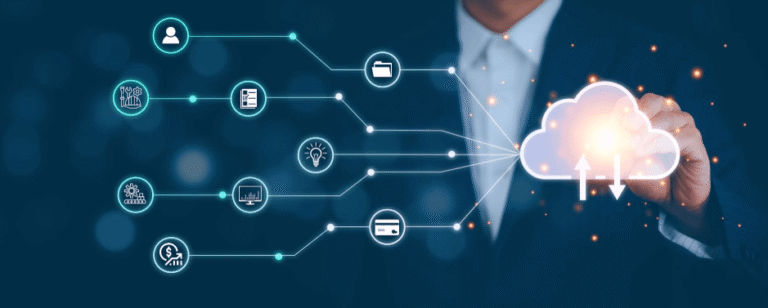The Impact of Big Data on Business and Consumer Behavior
Introduction
In today’s digital age, data has become one of the most valuable assets for businesses. From sales figures to customer interactions, the volume of data generated daily is unprecedented. This surge in data collection has given rise to big data, a term used to describe large, complex datasets that traditional data processing methods can’t handle efficiently. In this article, we explore the role of big data in modern businesses, its impact on consumer behavior, and how companies are using data-driven insights to gain a competitive edge.
What is Big Data?
Big data refers to extremely large datasets that can be analyzed to reveal patterns, trends, and associations, particularly relating to human behavior and interactions. The data can come from various sources, including social media, transactions, sensors, and customer interactions. Big data is typically characterized by the three V’s:
Volume: The vast amount of data being generated.
Velocity: The speed at which data is being produced and processed.
Variety: The different types of data, such as structured, semi-structured, and unstructured data.
To make sense of big data, businesses rely on advanced analytics and machine learning algorithms to extract valuable insights that inform decision-making, optimize operations, and improve customer experiences.
See also: The Impact of Big Data on Business and Consumer Behavior
The Role of Big Data in Modern Business
Data-Driven Decision-Making
One of the biggest advantages of big data for businesses is its ability to drive data-driven decision-making. By analyzing vast amounts of data, companies can gain insights into market trends, customer preferences, and operational inefficiencies. This enables businesses to make more informed decisions that are grounded in real-time data rather than intuition or guesswork.
For example, a retail company might use big data to analyze purchasing patterns and customer behavior, helping them optimize inventory management, pricing strategies, and promotions. In contrast, a financial institution might use big data to detect fraud by monitoring transaction patterns and identifying unusual activity.
Personalized Customer Experiences
Big data allows businesses to offer personalized products and services by understanding individual customer preferences and behaviors. Companies can track everything from past purchases to browsing behavior, and use that information to tailor recommendations, advertisements, and offers.
Streaming services like Netflix and Spotify use big data to suggest movies, shows, and music based on users’ viewing or listening history. E-commerce platforms like Amazon utilize big data to recommend products based on a customer’s past purchases, searches, and wishlist items. By offering highly personalized experiences, businesses can increase customer satisfaction, loyalty, and conversion rates.
Enhanced Marketing Strategies
With access to big data, businesses can refine their marketing strategies and target specific segments with precision. Social media, web analytics, and email marketing platforms collect massive amounts of data that can be analyzed to better understand the audience’s interests, demographics, and behaviors.
For example, a company might analyze customer sentiment on social media to adjust its messaging or identify emerging trends. With big data, businesses can move away from one-size-fits-all marketing and instead create more effective, targeted campaigns that resonate with consumers.
Supply Chain Optimization
Big data also plays a key role in optimizing supply chain management. By tracking products in real-time, businesses can monitor inventory levels, predict demand, and streamline the distribution process. For instance, companies like Walmart and FedEx use big data to forecast demand and ensure that they have the right products in stock at the right time, minimizing overstocking or understocking.
Furthermore, real-time data analytics can help companies identify bottlenecks in the supply chain, predict disruptions (such as weather or traffic delays), and improve overall efficiency, leading to cost savings and better customer satisfaction.
Predictive Analytics
Another significant application of big data is in predictive analytics. By analyzing historical data, businesses can forecast future outcomes and trends. This allows companies to proactively address challenges and opportunities before they arise.
For example, in the healthcare industry, predictive analytics can help forecast disease outbreaks, predict patient admissions, or identify high-risk patients for specific conditions. In retail, predictive analytics can help businesses anticipate consumer demand, optimize pricing, and improve inventory management. By leveraging predictive analytics, businesses can stay ahead of the curve and make smarter, more proactive decisions.
The Impact of Big Data on Consumer Behavior
Improved Customer Insights
With the wealth of data available from consumer interactions, businesses can better understand their customers’ preferences, pain points, and behaviors. For example, retailers can track the path customers take on their websites, monitor what products they view most often, and analyze the time they spend on specific pages. This allows businesses to optimize their websites for a better shopping experience and offer products that customers are more likely to buy.
Additionally, analyzing customer reviews, surveys, and social media interactions provides valuable feedback that companies can use to improve their products and services. By gaining deeper insights into customer needs, businesses can enhance customer satisfaction and increase their chances of retaining loyal customers.
Shifting Consumer Expectations
As consumers become more accustomed to personalized experiences, they now expect businesses to deliver tailored products and services. Big data enables companies to anticipate customer needs and provide relevant offers or content in real-time. However, consumers are also becoming more concerned with privacy and the way their data is being used.
This shift in consumer expectations means businesses must find a balance between providing personalized experiences and respecting consumer privacy. Companies that fail to protect customer data or misuse big data risk losing consumer trust and loyalty.
Changing Purchasing Habits
Big data is reshaping how consumers make purchasing decisions. By analyzing data from multiple touchpoints, businesses can understand not just what consumers are buying, but also the factors that influence their decisions. For example, social media interactions, online reviews, and mobile browsing behavior can provide insights into consumer preferences and opinions, ultimately guiding purchasing choices.
The convenience of online shopping and the ability to compare prices in real-time means consumers are more informed than ever. Businesses that leverage big data to provide competitive pricing, offer relevant promotions, and enhance customer service will be better positioned to meet evolving consumer demands.
The Challenges of Big Data for Businesses
While big data offers significant benefits, it also presents challenges. Some of the key challenges include:
Data Privacy and Security: The more data a business collects, the greater the risk of data breaches and privacy violations. Protecting sensitive customer information is a top priority, and businesses must comply with regulations like GDPR (General Data Protection Regulation) to ensure data security.
Data Quality and Consistency: Big data is only valuable if it is accurate and clean. Poor-quality data can lead to misleading insights, which can negatively impact decision-making. Companies need to invest in data cleaning and validation processes to ensure data reliability.
Integration Across Systems: Many organizations collect data from various sources, such as social media, customer service interactions, and sales platforms. Integrating these data sources into a cohesive system can be a challenge and requires advanced analytics tools and skilled data scientists.
Skilled Workforce: With big data comes the need for skilled professionals who can analyze and interpret complex datasets. Businesses must invest in hiring or training data scientists and analysts who can turn raw data into actionable insights.
The Future of Big Data in Business
The future of big data looks incredibly promising, with advancements in artificial intelligence (AI) and machine learning set to further enhance the ability to process and analyze large datasets. As businesses continue to adopt big data analytics, we can expect to see more advanced predictive models, deeper customer insights, and improved decision-making processes.
Additionally, as privacy concerns grow, companies will need to prioritize ethical data usage and transparency to maintain consumer trust. The future will likely see more emphasis on responsible data collection and stronger privacy regulations to ensure that consumers’ rights are protected while businesses continue to innovate.
Conclusion
Big data has fundamentally changed the way businesses operate, allowing them to make smarter decisions, improve customer experiences, and optimize operations. By analyzing vast amounts of data, companies can gain deeper insights into consumer behavior, predict trends, and stay ahead of the competition. However, as data continues to grow, businesses must navigate challenges such as data privacy and security, integration, and talent acquisition. The future of big data holds enormous potential, and businesses that can harness its power responsibly will thrive in the digital age.






